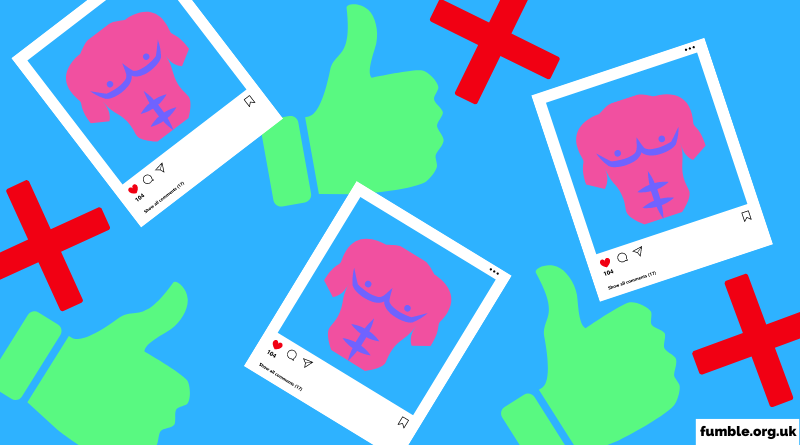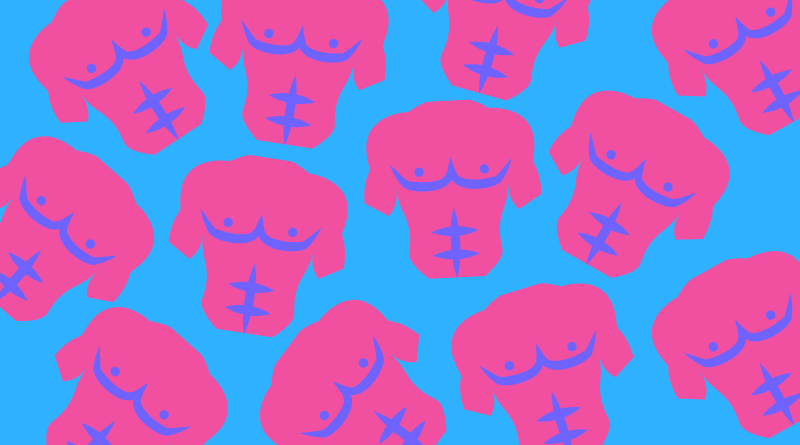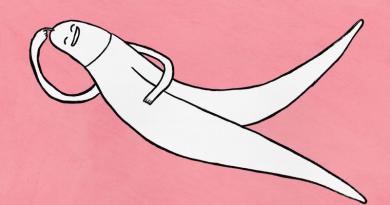Negative body image? Welcome to the club
The unrealistic pursuit of the ‘perfect’ body is an epidemic among men too
We might think it’s just women and girls who struggle with negative body image, but it’s totally normal for people of any gender (including boys and men!) to have insecurities about how they look. It’s possible we’ve all thought one (or more) of the following statements, whatever our gender:
🙆 I’m too short
🙋 I’m too tall
🧍 I’m too skinny
🤦 I’m too fat
🙎 I’m too small
🤷 I’m too big
🚶 I need a flat stomach
💪 I need more muscles
Sound familiar? Negative body image is so widespread, and it’s an issue that can affect anyone. So we need to talk about it more. While society is now more aware of the pressure women are under to meet unrealistic beauty standards, it continues to largely ignore the very same pressure that men are under. It’s impossible for anyone to look like some sort of superhero! He’s some hard truths for you:
1) Barbie & Ken aren’t real people.
2) That photo you saw in that magazine that made you think ‘that’s the body I want’? It’s almost definitely Photoshopped or airbrushed.
3) You’ve never looked as good as you do right now. Seriously, we mean it.
The problem is that even if we know the above to be true, most of us fail to really believe it and, as a result, strive to live up to an unrealistic ideal that we’re never going to meet.

When it becomes a bigger problem
It’s sadly completely normal to have insecurities, and it’s likely we will all have some body hang-ups during our lifetime. Remember: some people are just better at hiding it than others. While we don’t necessarily have to love our bodies 100% of the time, if we find ourselves constantly thinking and worrying about how we look, it might be a sign of a more serious problem. Here are some things that might help you to spot body image struggles, whether that’s for yourself or a friend:
🗣️ Regular self-criticism
🏃Extreme exercising
🧍 Sudden change in body shape or desire to change body shape
💊 Talk of steroid/substance use
🍎 Eating problems, such as disordered eating and eating disorders
Body image and cis men
Note: ‘cisgender men’ or ‘cis men’ refers to men who were assigned male at birth, based on having a penis and other biological characteristics, and identify as men too. Cis is the opposite of trans. We discuss trans men more here, and here’s some support and advice about navigating sex and relationships for trans men and trans masculine people.
Because boys and men are discouraged from talking about feelings and emotions, we often don’t speak up when we’re struggling, so more serious problems with body image may go unnoticed and undiagnosed, which is when it becomes ever more dangerous for our physical and mental health.
There’s now lots of research being done on it. The irrational logic of muscle dysmorphia (the science term) —or “bigorexia” as it is otherwise known among men— is simple: if you have the hyper-masculine body then everything else in your life will work out too. You’ll get the job you want, you’ll get the partner you want. Right? WRONG! So wrong. The word M-U-S-C-U-L-A-R-I-T-Y might look and sound like M-A-S-C-U-L-I-N-I-T-Y but they’re not the same thing. Really, they’re not.

What can boys and men do about it?
We can change how we think about male body image. Remember, it’s not a weakness to open up about how you’re feeling or if you’re struggling. Here are five things that we can do to help tackle negative body image:
🗣️ Don’t suffer in silence – talk to people you trust about it
💁 Start embracing imperfection, both in yourself and in others – it’s what makes us unique!
🦸 Remember you’re not a superhero – save that for your Halloween outfit
💬 Tell people that you’re uncomfortable with certain words if they use them to describe your physical appearance
🥰 Promote body positivity among friends
If you’re struggling with body image, regardless of gender, and are worried that it might be a sign of a more serious problem, there are places you can go for help and support. You don’t have to manage this alone. It can really help to talk about how you’re feeling, particularly with specially trained professionals, and you can share as much or as little as you feel comfortable. Beat runs a free helpline if you need specific advice about eating disorders.
Other support
- Male body positivity
- Body Dysmorphic Disorder
- YoungMinds – Body image
- Beat – Do men get eating disorders
Read more
Last Reviewed 30 August 2023
Image Credit: Armin Rimoldi via Pexels





